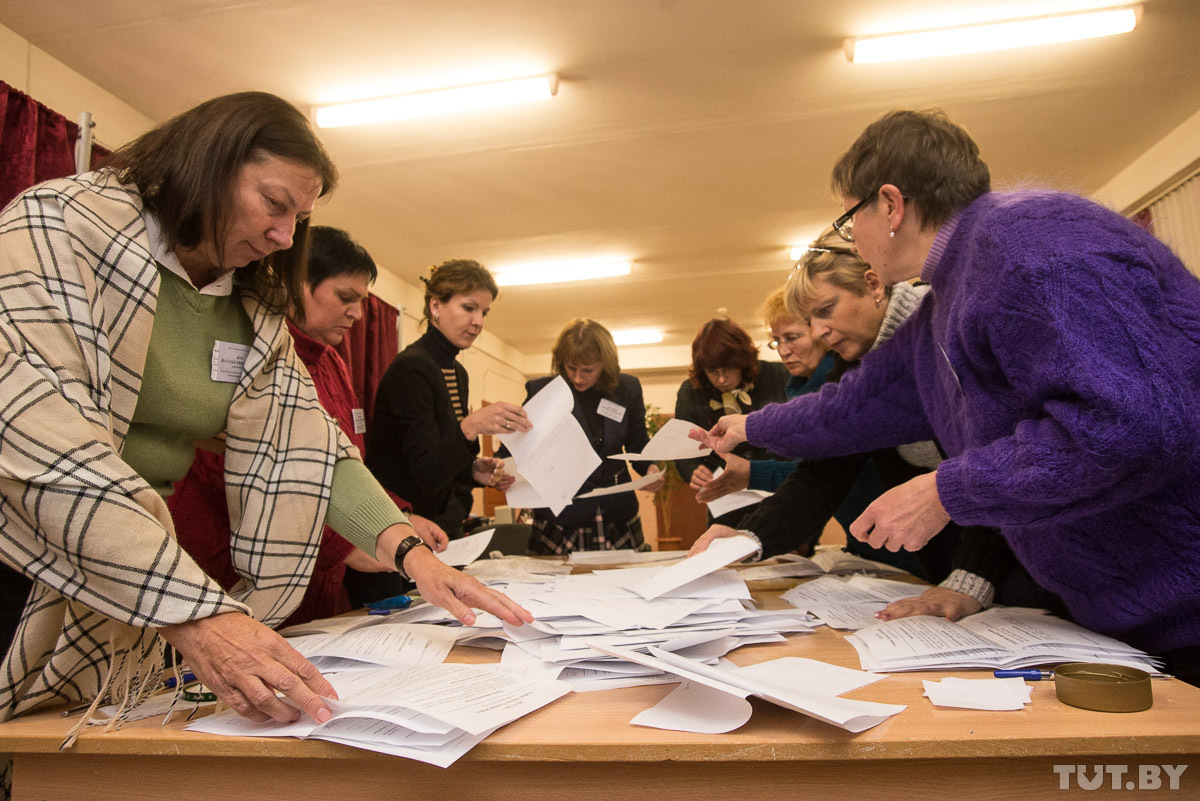Belarusian authorities forced to accept superficial changes to election rules
 The situation has not changed
The situation has not changed

The Central Election Commission has kept the most criticized by human rights activists and the opposition voting procedures, which enable to guarantee the needed voting results. However, the Belarusian government was forced to make formal and minor concessions to the key demands for changes in the electoral rules. The authorities are likely to refrain from tough actions against the opposition and may somewhat increase the campaigning opportunities for the opposition.
The Central Election Commission has approved the practical guide for the members of precinct election commissions in the upcoming parliamentary elections.
The core requirements of the Belarusian human rights activists and the opposition to the election organizers include: ensuring that the opposition is included in the election commissions, restricting early voting and ensuring the transparency of the vote counting. The Belarusian authorities were forced to find a compromise to almost each of these requirements without compromising the overall control over the electoral process.
The new guide envisages the introduction of advisors from representatives of the candidates in the territorial election commissions. The main opposition claim, however, concerns the activities of the election commissions, where the opposition’s representation is likely to be minimal. For instance, the CEC recommended a more transparent procedure for the selection of the electoral committees’ members, which does not mean increasing the representation of the opposition. Earlier, the president emphasised the importance of forming the election commissions from the ‘decent people’, i.e. according to the Belarusian authorities, not from opposition activists. The local election organizers may rightly reject the majority of opposition candidates in the election commissions based on the lack of experience, employment, or administrative offenses resulting from the persecution by the security forces.
The new CEC recommendations include vote counting on the same side of the table, which, however, is unlikely to increase the chances of independent observers to monitor the process. The CEC has not changed the 3 metres rule, i.e. the distance between observers and the table, which does not allow seeing the real results of the vox populi.
The European institutions have supported the opposition and human rights activists’ claims regarding the clarification of criteria for early voting. Independent and party election observers emphasised the likelihood of results falsifications during the early voting, which conventionally provides a disproportionately large percentage of support for the current authorities. That said, with each election campaign the number of early voters has only increased, reaching 36.05% in the latest presidential elections. Amid the overall low turnout (50-60%), especially in large cities, high numbers of support in the early voting have determined the elections’ winner.
The CEC recommendation to use transparent ballot boxes is unlikely to affect the vote rigging during the early voting in the regions.
However, by introducing the regional-level election commissions the CEC’s workload with considering election complaints from the regions will reduce. This novelty may also create a better picture of the elections to the international observers.
That said, the authorities might register non-conflict opposition candidates to increase the turnout in the elections. CEC head Lidziya Yarmoshyna attempted to boost the interest of the opposition and the electorate in the upcoming parliamentary campaign. In an interview with Belarusian ONT TV Channel she pointedly noted the importance of the alternative opinion in the Parliament, “Enhancing political activity still suggests a mandatory presence of the discussion”.
Overall, the Belarusian authorities are likely to somewhat liberalise the environment for the opposition during the parliamentary election campaign. However, they will continue to block the possibilities for the opposition to have some control over the organisation of the elections and the counting of votes.
Image: Jauhien Erchak, TUT.BY
Subscribe to our newsletter




Situation in Belarus
Constitutional referendum: main consequences


 Video
Video
How to count the political prisoners: are the new criteria needed?


 Video
Video
Paternalism In Decline, Belarusian Euroscepticism, And The Influence Of Russia


 Video
Video











